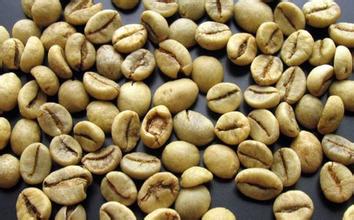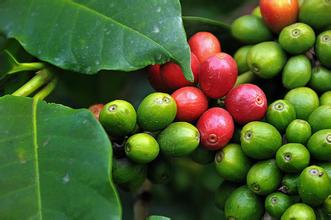Yemeni coffee beans mocha coffee beans in Asia have slippery and fragrant flavor characteristics.

Yemen
Before the 6th century AD, Yemen was called Arabia, so coffee trees shipped from Yemen to other places were also called Arabian coffee trees. But the origin of these trees is Ethiopia, and the Dutch spread these coffee trees around the world. Sail eastward around the Cape of good Hope (The
Cape Of Good
Dutch businessmen from Hope had to travel through the east coast of Africa to the port of Mocha in Yemen before they began their long trek to India. In 1696, the Dutch introduced coffee trees to Ceylon (now Sri Lanka) and then to Batavia in Java.
Mocha beans are smaller and rounder than most, which makes mocha beans look like peas-in fact, bean-shaped berry coffee beans (Peaberrybean) are sometimes called mocha beans. Mocha beans are similar in shape to Ethiopia's Harrar beans, with small particles, high acidity and a strange and indescribable spicy flavor. If you taste it carefully, you can tell the taste of chocolate, so the attempt to add chocolate to coffee is a natural development.
In Yemen, coffee growers plant poplars to provide shade for coffee to grow. As in the past, these trees are planted on steep terraces to maximize the use of less rainfall and limited land resources. In addition to Tippika Coffee and bourbon Coffee trees, more than a dozen different coffee species native to Ethiopia are grown in Yemen. But even good coffee, such as premium mocha, is air-dried and the peel is connected to the beans. Until now, Yemen often uses traditional stone mills to remove dry and hard shells, which makes the coffee beans irregular in shape and often damages them.
Despite the high quality and smooth aroma of Yemeni coffee, there is something unsatisfactory, that is, the quality can not be continuously guaranteed and the classification of its coffee beans is uncertain. Traditionally, the best coffee beans in Yemen come from Mattari, followed by Sharki, followed by Sanani. These beans are low in caffeine and are exported from December to April of the following year. The problem in the past was that coffee from the north was adulterated before it was shipped from the southern port of Aden. Only coffee shipped from the port of Hodeida can be determined to come from the north. The vast majority of Yemeni coffee is grown in natural conditions, mainly because growers lack funds.
Important Notice :
前街咖啡 FrontStreet Coffee has moved to new addredd:
FrontStreet Coffee Address: 315,Donghua East Road,GuangZhou
Tel:020 38364473
- Prev

Tanzania coffee beans in Africa have the characteristics of soft acidity and attractive aroma.
Tanzania gourmet coffee has soft acidity and attractive aroma, which is absolutely worth enjoying. Coffee exports from Tanzania (Tanzania) play an important role in the whole national economy. Bean-shaped berry coffee is very productive and is said to be more fragrant than ordinary coffee. Generally speaking, the coffee beans in Tanzania have an extraordinary quality. For example, near Kilimanjaro (
- Next

Zaire coffee beans in Africa have the characteristics of strong aroma and moderate taste.
Zaire's best Zaire coffee is grown in the north-east of the country, especially in the provinces of Oriental and Kivu, which used to produce excellent beans, berries and giant beans. Unfortunately, the high-quality coffee produced in Zaqire is dwindling, but the taste of Zaire coffee is still excellent. Like Kenyan Coffee one
Related
- Does Rose Summer choose Blue, Green or Red? Detailed explanation of Rose Summer Coffee plots and Classification in Panamanian Jade Manor
- What is the difference between the origin, producing area, processing plant, cooperative and manor of coffee beans?
- How fine does the espresso powder fit? how to grind the espresso?
- Sca coffee roasting degree color card coffee roasting degree 8 roasting color values what do you mean?
- The practice of lattes: how to make lattes at home
- Introduction to Indonesian Fine Coffee beans-- Java Coffee producing area of Indonesian Arabica Coffee
- How much will the flavor of light and medium roasted rose summer be expressed? What baking level is rose summer suitable for?
- Introduction to the characteristics of washing, sun-drying or wet-planing coffee commonly used in Mantenin, Indonesia
- Price characteristics of Arabica Coffee Bean Starbucks introduction to Manning Coffee Bean Taste producing area Variety Manor
- What is the authentic Yega flavor? What are the flavor characteristics of the really excellent Yejasuffi coffee beans?

